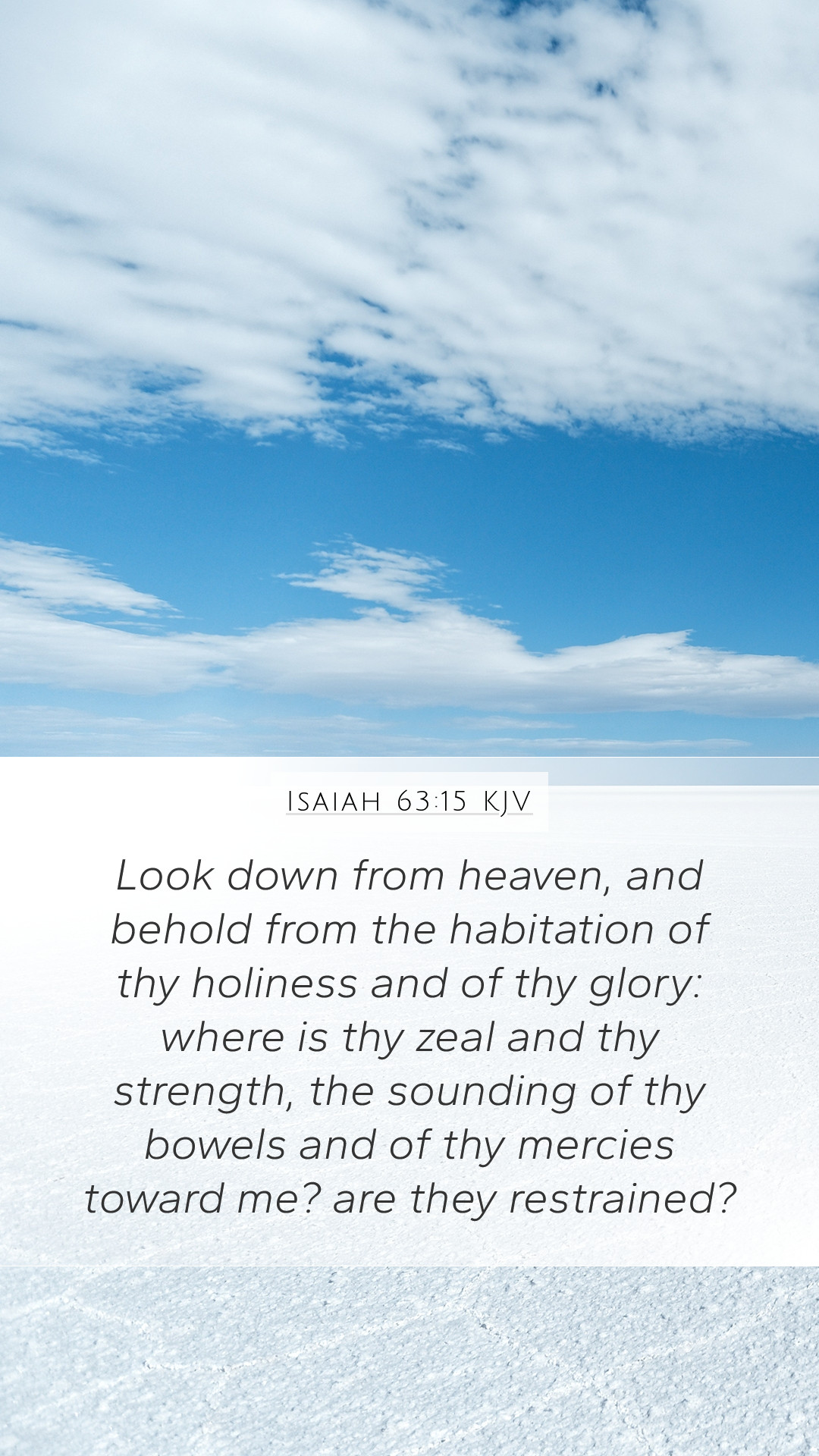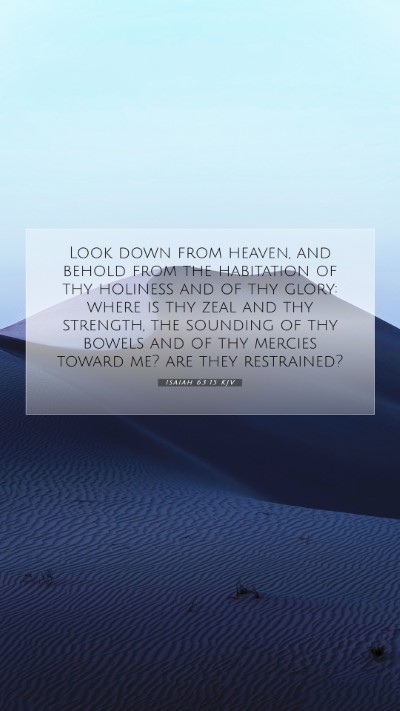Understanding Isaiah 63:15 - Insights from Public Domain Commentaries
Isaiah 63:15 is a profound verse that invites deep reflection and analysis. Below is a comprehensive exploration into the meaning of this verse, incorporating insights from esteemed public domain commentaries such as those by Matthew Henry, Albert Barnes, and Adam Clarke.
Verse Text
Isaiah 63:15 (KJV): "Look down from heaven, and behold from the habitation of thy holiness and of thy glory: where is thy zeal and thy strength, the sounding of thy bowels and of thy mercies toward me? Are they restrained?"
Verse Commentary
-
Divine Perspective:
According to Matthew Henry, this verse is a prayerful cry directed to God, urging Him to look down from His heavenly abode. The author seeks to remind God of His omnipresence, highlighting the need for His intervention in the affairs of humanity. The phrase "look down from heaven" signifies a plea for divine attention amidst suffering and turmoil.
-
Habitation of Holiness:
Albert Barnes explains that the "habitation of thy holiness" refers to God's exalted status and purity. It exemplifies His nature as sovereign and holy, beckoning the reader to understand that God's vantage point is untainted by the earth's troubles. This divine abode contrasts sharply with human frailty and sin, establishing the foundation for the appeal for mercy.
-
Zeal and Strength:
The mention of "zeal" and "strength" points to God’s powerful attributes that deliver and save His people. Adam Clarke remarks that these divine qualities are integral to understanding God's character—we are reminded that God’s fervor for justice and mercy should encourage believers to seek Him earnestly in times of distress.
-
Sounding of Bowels:
The "sounding of thy bowels" is a reference to the deep compassion of God. This metaphor illustrates God's emotional involvement with His creation, indicating a longing for His people’s return to Him. As Henry aptly notes, it speaks to God's merciful nature and His desire to rescue those who turn to Him in repentance.
-
Restrained Mercies:
The question "Are they restrained?" reflects a pressing concern from the writer. Barnes interprets this as querying why God's mercies seem delayed or absent in times of need. It speaks of the tension often felt by believers when prayers seem unanswered, prompting a deeper search for understanding God's timing and purposes.
Theological Implications
Isaiah 63:15 not only captures a heartfelt plea but also emphasizes the importance of understanding God’s attributes in light of human experiences. The reflections from various commentators invoke a deeper theological inquiry into:
- The nature of God: The text encourages readers to explore the complexities of God's character, balancing His holiness with His compassionate mercy.
- Human suffering: It provokes thoughts on why suffering occurs and challenges believers to seek God in their struggles, aligning with the scriptural principle of persistent prayer.
- The role of faith: The verse exemplifies an act of faith, urging believers to maintain trust in God's goodness, even when circumstances appear dire.
Application of Isaiah 63:15
Applying this scripture to daily life encourages the faithful to maintain a posture of earnest longing for God's presence and help. It is an appeal for believers to engage actively with their faith, particularly in communal or personal prayers, fostering deeper connections among Bible study groups or during online Bible study sessions.
Cross References
- Psalms 123:1-2: A similar cry for divine mercy and help.
- Isaiah 64:1-4: The call for God to act in power.
- Lamentations 3:22-23: A reflection on God's mercies being new every morning.
- Romans 9:15: God's mercy in choosing whom He will help.
- Matthew 9:36: Jesus' compassion towards the crowds.
Conclusion
Isaiah 63:15 serves as a poignant reminder of the struggles of faith and the depth of divine compassion. It compels believers to engage in Bible studies and discussions that foster a richer understanding of Scripture. By comprehending the textual nuances and theological significance, individuals can cultivate stronger personal relationships with God and apply these insights to their daily lives.


